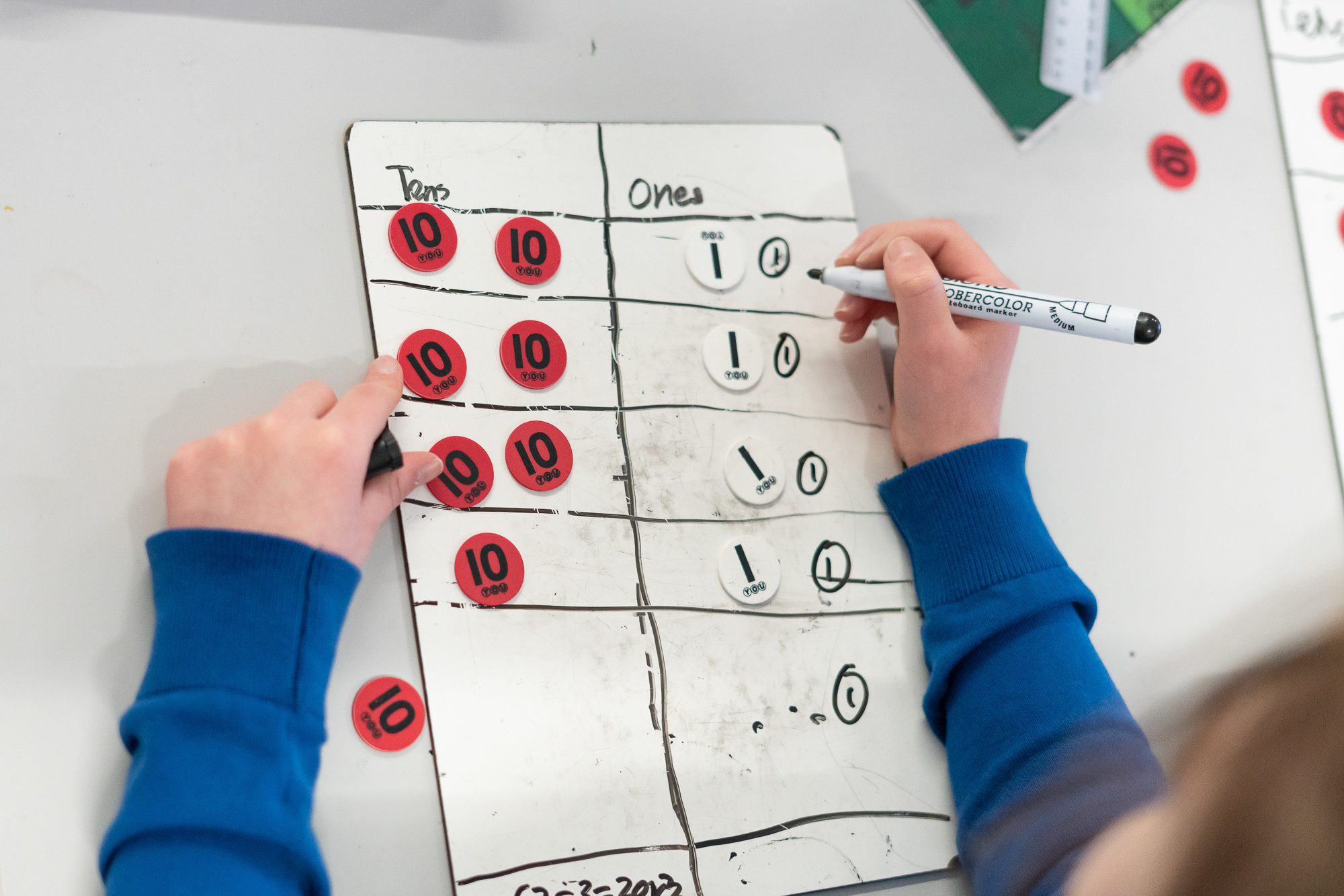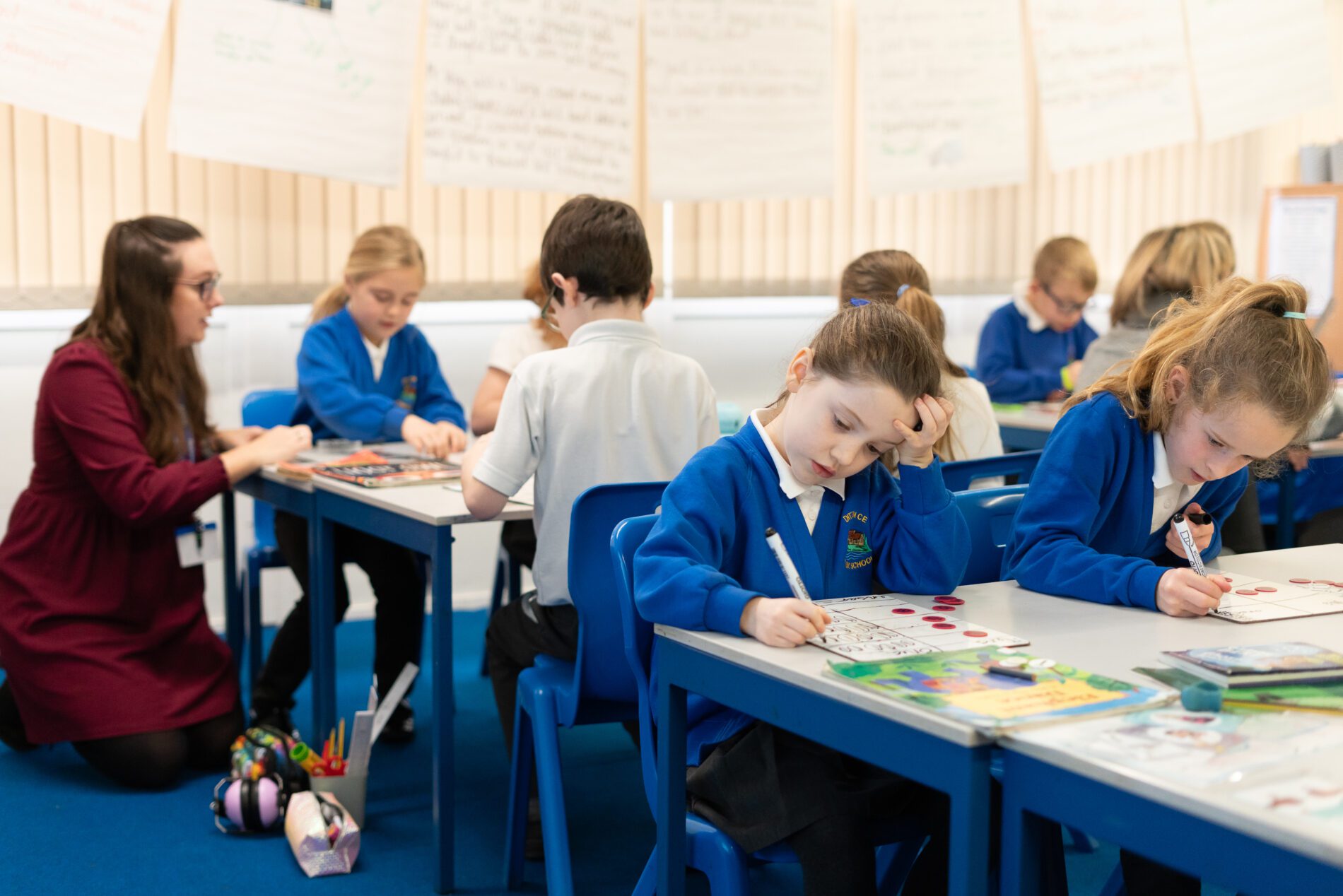Mathematics Subject Leader: Miss K Semark
Intent
The 2014 National Curriculum for Maths aims to ensure that all children:
- Become fluent in the fundamentals of Mathematics
- Able to reason mathematically
- Can solve problems by applying their Mathematics
- Can solve problems actively by applying their Mathematics in active maths lessons.
At Ditton Juniors, these skills are embedded within Maths lessons and developed consistently over time. We are committed to ensuring that children will be able to recognise the importance of Maths in the wider world and that they are also able to use their mathematical skills and knowledge confidently in their lives in a range of different contexts.
We want all children to enjoy Mathematics and to experience success in the subject, with the ability to reason mathematically. We are committed to developing children’s curiosity about the subject, as well as an appreciation of the beauty and power of Mathematics.


Implementation
The content and principles underpinning the 2014 Mathematics curriculum and the Maths curriculum at Ditton Juniors reflect those found in using high‐performing education systems like, ‘Chris Quigley Essentials Curriculum’.
These principles and features characterise this approach and convey how our curriculum is implemented through:
- Teachers adopt a mastery approach with an expectation that all children will be capable of achieving high standards in Mathematics.
- A large majority of children progress through the curriculum content at the same pace. Adaptation is achieved by emphasising deep knowledge and through individual support and intervention.
- Teaching is underpinned by methodical curriculum design and supported by carefully crafted lessons and resources to foster deep conceptual and procedural knowledge.
- Practice and consolidation play a central role. Carefully designed variation within this builds fluency and understanding of underlying mathematical concepts.
- Teachers use precise questioning in class to test conceptual and procedural knowledge and assess children regularly to identify those requiring intervention so that all children keep up.
To ensure whole consistency and progression, the school uses the DfE-approved ‘White Rose’ Maths scheme, Chris Quigley Essentials Milestones. This along with the school’s ongoing engagement with the DFE-funded Maths Hubs programme, continues to ensure that staff at all levels understand the pedagogy of the approach.
In KS2 and we encourage the use of manipulatives at all times. Teachers use careful questions to draw out children’s discussions and their reasoning. The class teacher then leads children through strategies for solving the problem, including those already discussed. Independent work provides the means for all children to develop their fluency further, before progressing to more complex related problems.
Mathematical topics are taught in blocks, to enable the achievement of ‘mastery’ over time. Each lesson phase provides the means to achieve greater depth, with more able children being offered rich and sophisticated problems, as well as exploratory, investigative tasks, within the lesson as appropriate.
Impact
The school has a supportive ethos and our approaches support the children in developing their collaborative and independent skills, as well as empathy and the need to recognise the achievement of others. The curriculum addresses these preconceptions by ensuring that all children experience an active, enjoyable, challenge and success in Mathematics.
Regular and ongoing assessment informs teaching, as well as intervention, to support and enable the success of each child. Interventions take place at the earliest convenience to ensure the children are able to achieve and progress, through teacher led keep up sessions. These factors ensure that we shall be able to maintain high standards, with achievement at the end of KS2 at the national average with some children demonstrating greater depth, at the end of each phase.
Mathematics Progression
Assessments
At Ditton Junior School, we follow the Chris Quigley ‘Essentials’ Curriculum which sets out essential coverage, learning objectives, standards, and progress measures that are required for all subjects.
For Maths, GPAS (Grammar, Punctuation and Spelling) and Reading, the children will be assessed formally twice a year in Years 1, 3, 4 and 5 and 3 times per year in Years 2 and 6. These assessments give the children a standardised score.
SEND Information
We ensure that SEND and disadvantaged children are given the necessary support in class to fully access the Maths Curriculum and equal opportunities are given for all to be confident in approaching any problem within the world around them.
Mathematics Resources
Further Mathematics Help
Fun Mathematics Games

